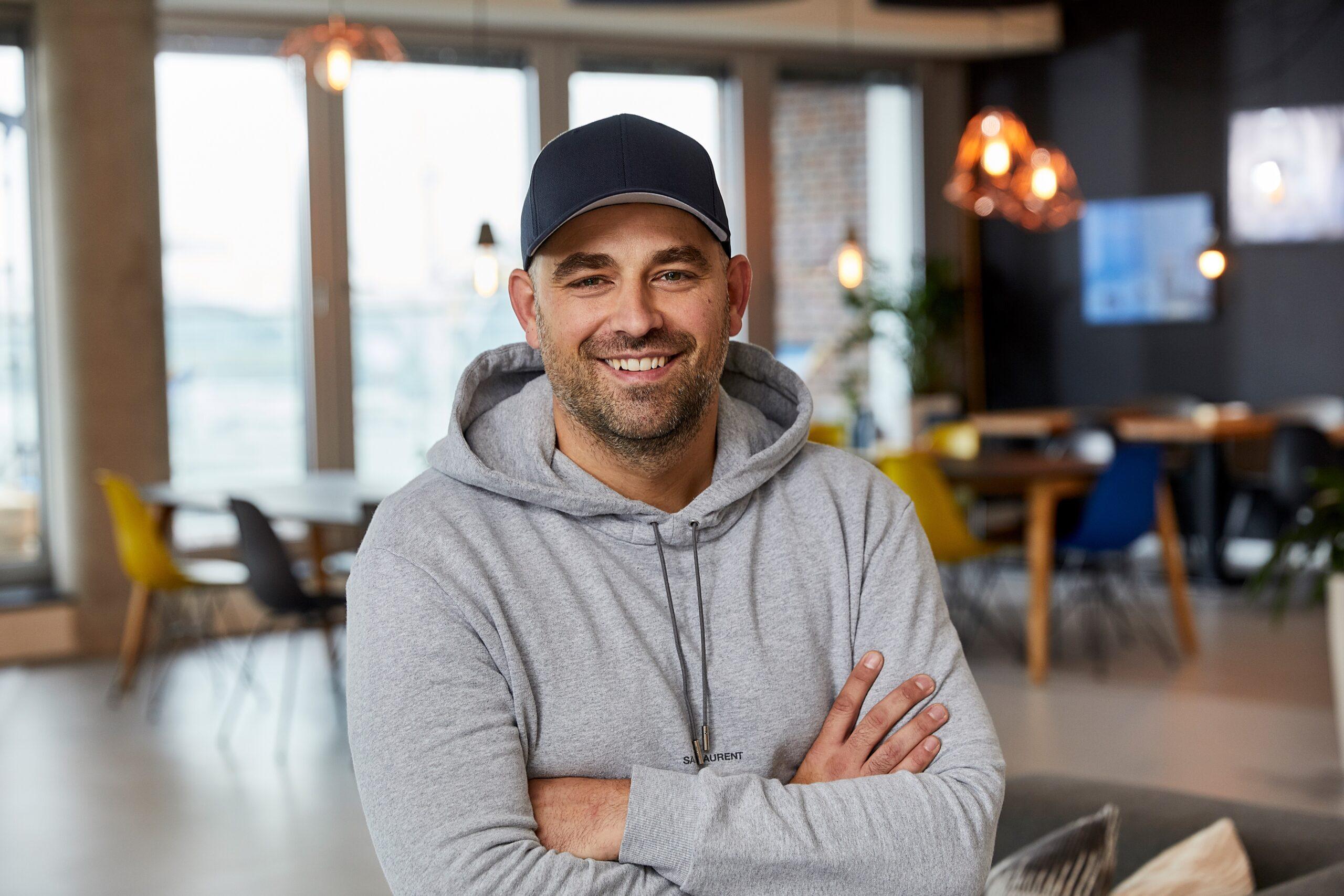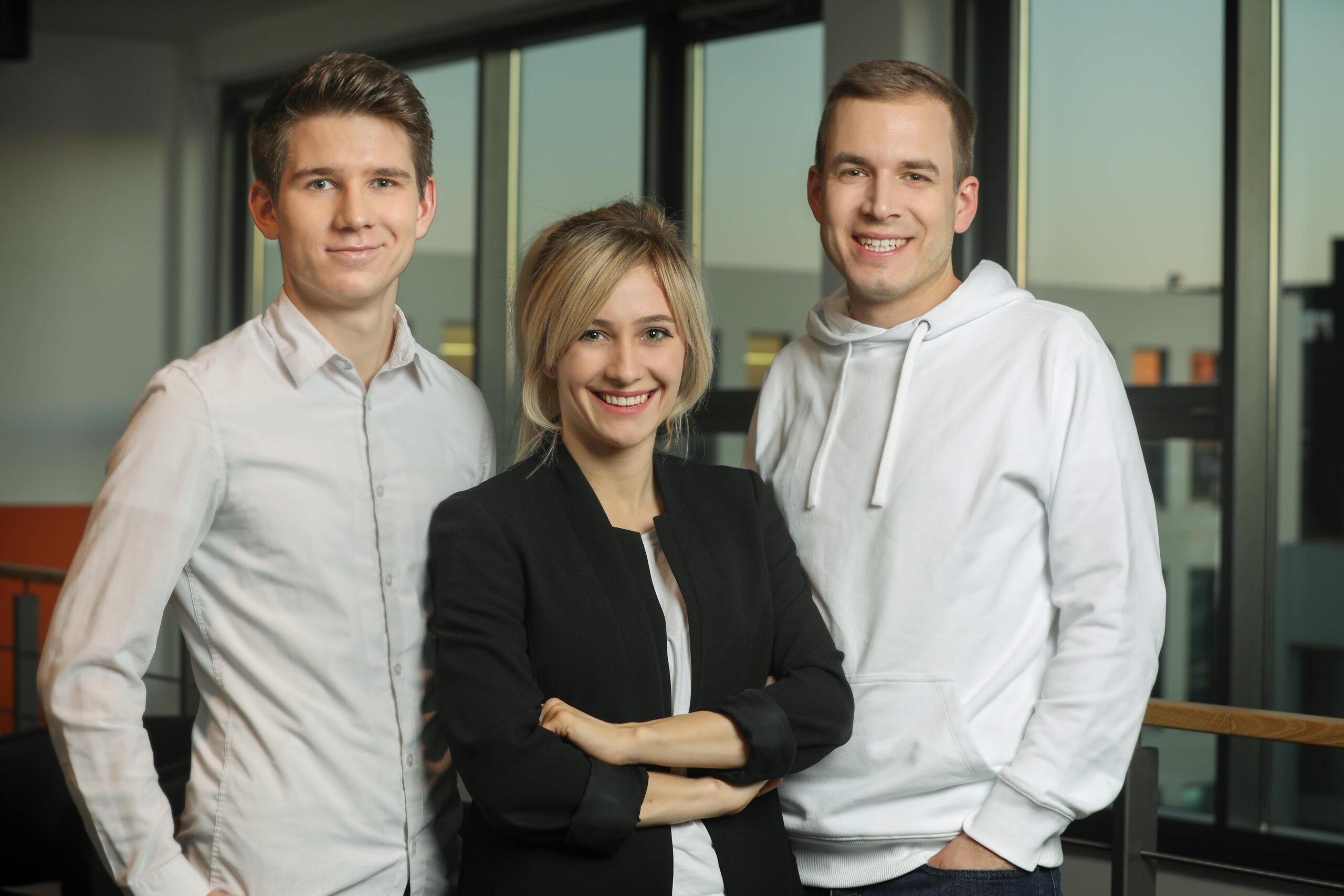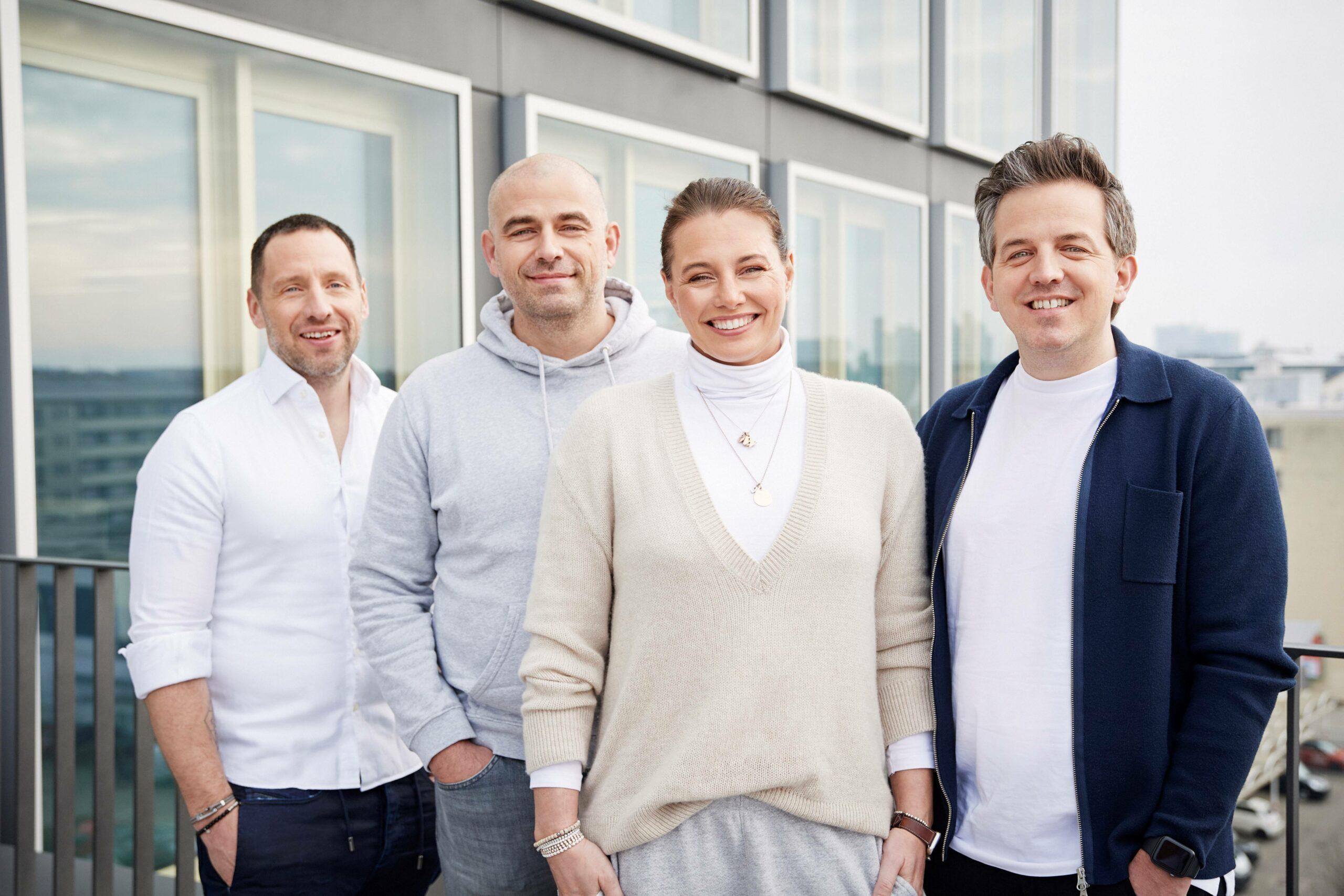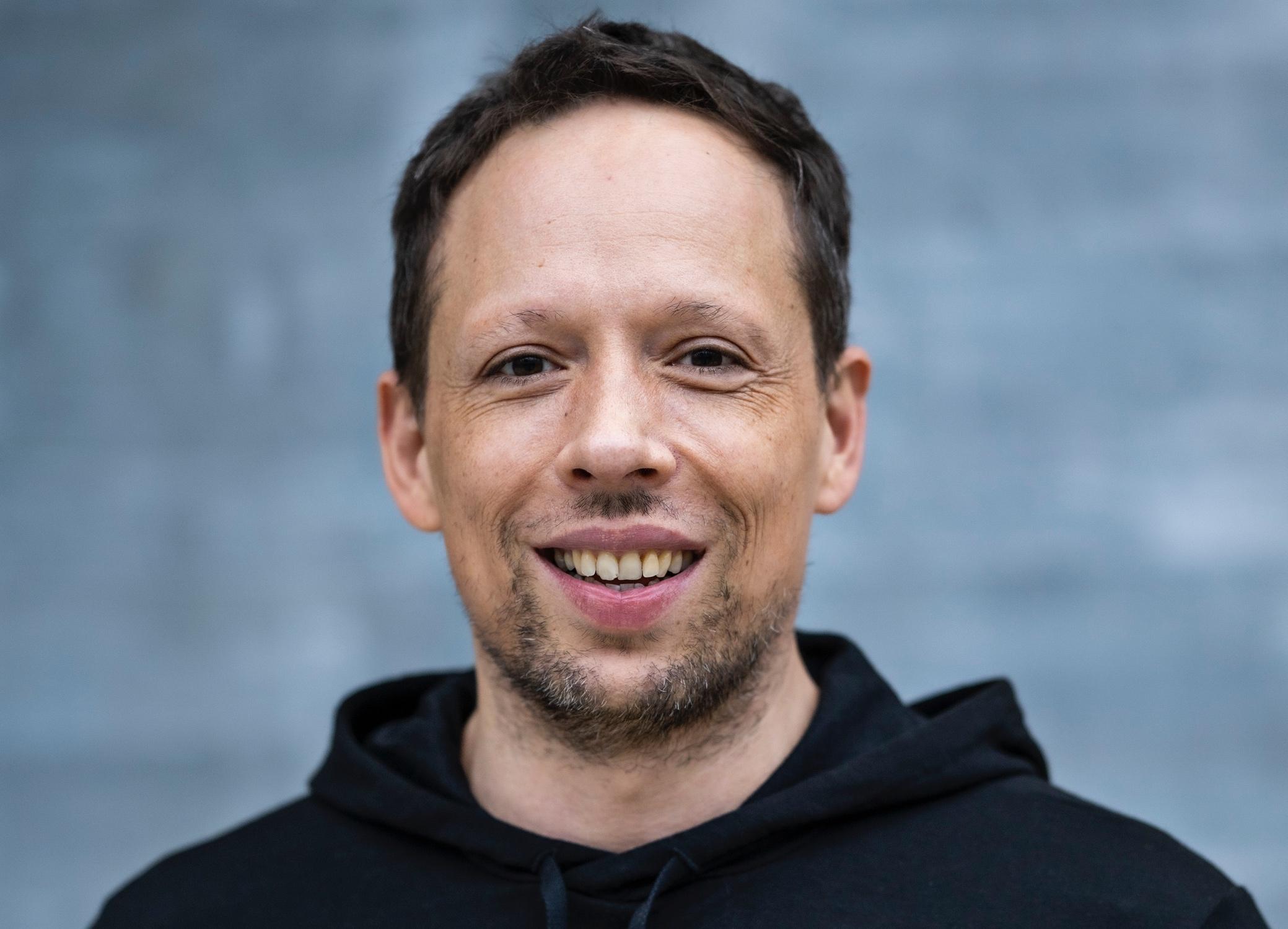"We are looking for ideas that improve the world"
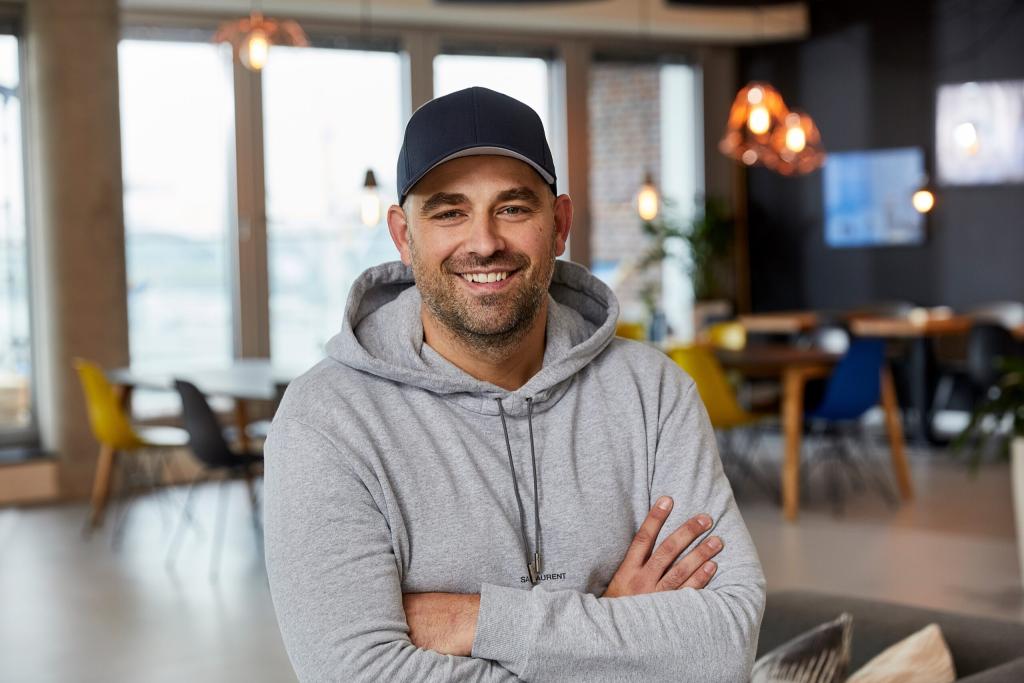
Christoph Behn wants to promote sustainable start-ups with better ventures. How founders get his money - and what it has to do with a personality test.
Christoph Behn wears his hair cropped short, the 41-year-old's broad back is visible under his gray sweater. He and his team managed to set up the card-making business without outside capital. The company recently achieved a turnover of 50 million euros and employs 250 people. Now he wants to invest in start-ups himself with better ventures. In this interview, he explains how founders get Behn's money, why he carries out a personality test before investing and what problems VC funds have today.
Mr. Behn, you want to invest in start-ups with better ventures. Do we need more investors in the start-up scene?
Absolutely. We still have too little capital, especially in the early stages of founding a company, and too few experienced founders who can help not only with money, but also with their experience and their network. This is exactly where we want to come in with better ventures and do some things differently. We don't think that everything we see is founder-friendly.
What do you mean that the funds are not founder-friendly?
You have to differentiate between angels, as we are with better ventures, and institutional investors - such as VC funds. We invest our own capital and therefore only have one "target group": The founders we believe in and support. Funds, on the other hand, serve their investors, for whom they are supposed to multiply the capital many times over. And as a VC, you certainly sometimes make decisions that satisfy investors rather than founders.
You now want to invest money with better ventures. How much is that?
We are an angel club and invest low and mid six-figure sums. In doing so, we primarily support founders who want to make the world more sustainable and thus improve it. We are convinced that these investments not only make the world a better place, but also have a huge market and people want to consume very consciously. In total, we are investing a high single-digit million sum in the first step. I see us as a business angel who is involved at an early stage, also as the first investor before the funding round, who helps with the pitch deck and then brings in other investors.
You now want to invest your money primarily in sustainable start-ups. Isn't that a risk that might be at the expense of returns?
It is always a risk to pull out. But many other venture capitalists have understood that sustainability is important and are also taking the first steps. Holtzbrink Ventures, for example, has invested in Everdrop, as have we. More and more players are recognizing that consumers want sustainable products, meaning that there are markets for these start-ups, and are also making targeted investments there. I am optimistic that there will be more of them.
Experts have been arguing about a definition of sustainability for years. So how do you choose your investments?
We look for ideas that improve the world. Of course, this includes ideas that reduce CO2 emissions and plastic, but the topic is even more complex. For me, business models that benefit society are also sustainable, for example new products that enable parents to take better care of their children. There is a lot of potential here, and we want to exploit it. The "what" counts just as much as the "how".
What do you mean by that?
Of course, it's important what kind of product a company makes, but how it's made is just as important. If I save a lot of plastic and completely ignore equal rights for women and men, is it sustainable? We try to take both dimensions into account when making investment decisions.
You have invested in Everdrop. Why?
The product and the team were right. The start-up produces a tab that you throw into a water bottle, which turns the water into a cleaning agent, thus saving a lot of plastic and preventing water from having to be transported across the globe, as would otherwise be the case with cleaning bottles. The idea is great and we could believe the team that they are serious, that it's not just a marketing story for consumers and investors. We personally find that very important.
How did you test it?
We talk to people, invite them, talk a lot. And we actually carry out personality tests to see who we are dealing with. This gives us more factors to help us make an investment decision.
How do you make sure that an investment is really sustainable before you make it?
This is a huge operational challenge and by no means trivial. You have to take an extremely large number of factors into account, from production to the supply chain to sales. At the end of the day, the question is: did it really have a positive effect? We'll only see that in a few years' time.
If the start-up still exists in this form.
Exactly. One problem that could arise is that new investors bring a lot of money with them and perhaps don't focus on sustainability. We want to avoid this and actively encourage founders to talk to us so that we can also bring partners with more money and similar goals on board. I don't see the problem with Everdrop either, because they don't want to offend their community. We saw how that can end with Oatly. There was only one US investor in it and he had something to do with Trump and the company had a shitstorm. The younger generation pays attention to things like that.
How do you check whether your investment was really sustainable?
I don't think it's one hundred percent possible. The team at Everdrop counts bottles that they have saved, of course: but is that without error? Probably not. However, I believe there is no black or white, only something in between and, accordingly, an investment decision is not always completely sustainable or not at all. We primarily invest in people and their values. And if the right people with the right values get money, then it can't be that wrong.
Thank you very much for the interview.
Personal details: Christoph Behn (41) is the founder and CEO of better ventures. Previously, he was the founder and CEO of Kartenmacherei for almost ten years. Without outside capital, he and his team succeeded in keeping the company consistently profitable and turning it into a company with an annual turnover of almost 50 million euros and over 250 employees. Before becoming an entrepreneur, Behn worked as a consultant at Bain & Company for several years.

Newsletter
Startups, stories and stats from the German startup ecosystem straight to your inbox. Subscribe with 2 clicks. Noice.
LinkedIn ConnectFYI: English edition available
Hello my friend, have you been stranded on the German edition of Startbase? At least your browser tells us, that you do not speak German - so maybe you would like to switch to the English edition instead?
FYI: Deutsche Edition verfügbar
Hallo mein Freund, du befindest dich auf der Englischen Edition der Startbase und laut deinem Browser sprichst du eigentlich auch Deutsch. Magst du die Sprache wechseln?







